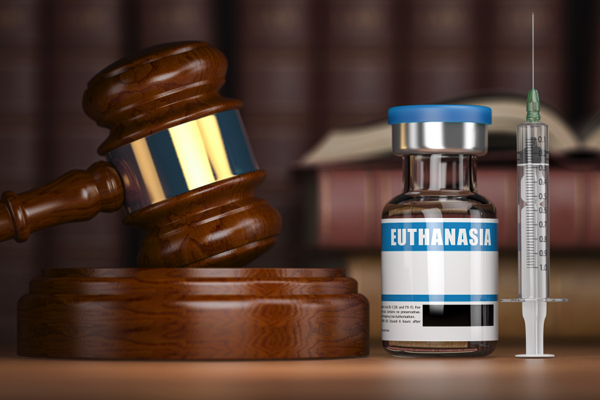Common diabetes drug may undermine critical exercise benefits, study finds
11/23/2025 / By Ava Grace

- Metformin can interfere with exercise benefits, blunting key improvements in blood vessel function, aerobic fitness and blood sugar control that are normally gained from physical activity.
- This creates a conflict between two standard treatments, as the drug appears to undermine the very physiological adaptations that exercise is meant to produce.
- The study found that participants who exercised while taking metformin saw diminished gains in vascular insulin sensitivity, a critical process for healthy blood flow and managing blood sugar after meals.
- Researchers theorize the interference occurs because metformin’s mechanism of calming cellular stress may short-circuit the strengthening signals that exercise sends to the body’s cells.
- The findings are a call for more personalized medical approaches, not a reason to stop prescribed medication, emphasizing the need for doctors to optimize how these two therapies are combined.
In a finding that challenges long-standing medical advice, a widely prescribed diabetes medication may be inadvertently sabotaging the very exercise routines doctors urge patients to adopt. New research suggests that metformin, a first-line defense against type 2 diabetes, can blunt key health improvements that are supposed to come from physical activity, including better blood vessel function, enhanced fitness and superior blood sugar control.
The study, led by a team from Rutgers University and published in the Journal of Clinical Endocrinology & Metabolism, sends a cautionary signal to the millions of Americans who rely on a combination of medication and lifestyle changes to manage their metabolic health. It reveals a complex and potentially counterproductive interaction between two pillars of preventive care.
For decades, physicians have confidently instructed patients with elevated blood sugar to pair metformin with consistent exercise. The logic was straightforward: Two powerful interventions should deliver a cumulative benefit. The new evidence paints a more complicated picture. Instead, metformin appears to interfere with the body’s normal, positive adaptations to physical training, forcing a difficult conversation about optimizing treatment strategies.
To investigate this interaction, the research team enrolled 72 adults at high risk for metabolic syndrome. The participants were divided into four distinct groups over 16 weeks: one performed high-intensity exercise with a placebo, another did high-intensity workouts with metformin and the final two engaged in low-intensity exercise with either a placebo or metformin. This design allowed scientists to isolate the pure effects of exercise from exercise combined with the medication.
The scientists focused on a crucial metric: vascular insulin sensitivity. This measures how well a person’s blood vessels respond to the hormone insulin. After a meal, insulin tells blood vessels to relax and widen, a process called vasodilation that is vital for efficiently delivering oxygen and nutrients to muscles. The study found that exercise alone significantly strengthened this response, helping to lower dangerous post-meal blood sugar spikes.
Metformin’s dampening effect emerges
The critical finding was that adding metformin noticeably diminished these gains. The drug acted as a physiological dampener, muting the improvements in vascular function that exercise alone provided. The benefits were blunted regardless of exercise intensity. The interference did not stop there. Participants taking metformin also experienced smaller gains in their aerobic fitness and saw less pronounced improvements in inflammation levels and fasting blood glucose.
These findings have tangible implications. Improvements in fitness translate into the energy needed for daily life and functional independence. When these gains are limited, quality of life can suffer. Furthermore, if exercise is not delivering its expected payoff, patients and doctors may be operating under a false sense of security, potentially increasing long-term cardiovascular risk.
The answer appears to lie in metformin’s fundamental mechanism of action. The drug works by gently inhibiting the mitochondria—the tiny power plants within our cells. This reduces cellular stress and helps lower glucose. However, exercise itself works by stressing these same systems to make them stronger. Researchers theorize that by preemptively calming the cellular environment, metformin may be short-circuiting the adaptive signals that exercise sends.
A call for nuance, not alarm
It is crucial to emphasize that these results are not a recommendation for anyone to stop taking their prescribed metformin or to abandon exercise. Both interventions remain powerfully beneficial on their own. Instead, the study serves as a critical call for heightened awareness and personalized medicine. Physicians must closely monitor patients using both treatments for stalled progress that might not align with their exercise efforts.
“Metformin can disrupt exercise benefits by potentially reducing the gains in muscle mass,” said BrightU.AI‘s Enoch. “This is supported by a 2019 study where individuals taking metformin who followed a workout program gained slightly less muscle compared to those not on the drug. This suggests the medication may interfere with the body’s typical adaptive response to exercise training.”
The goal is not to discard metformin but to learn how to best pair it with exercise—perhaps by adjusting timing, intensity or type of activity—to preserve the advantages of both.
Watch and discover how Big Pharma’s toxic drugs deplete vitamins and minerals.
This video is from the Health Ranger Report channel on Brighteon.com.
Sources include:
Submit a correction >>
Tagged Under:
Big Pharma, diabetes, diabetes cure, diabetes drug, diabetes science news, exercise, Men's Fitness, metabolic syndrome, metformin, natural cures, prevent diabetes, remedies, research, slender, Study, vascular insulin, Women's Fitness
This article may contain statements that reflect the opinion of the author




















